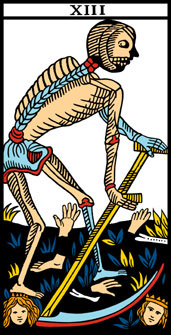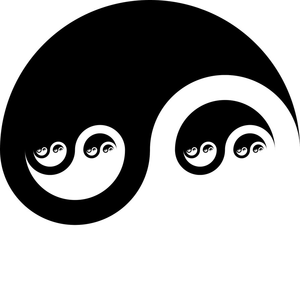The Joy of Failure & Error
Please don't let me be (inevitably) misunderstood.
I want to use the terms "Failure" and "Error" in some future writing, but I fear that if I do without first qualifying what I mean I'm liable to be unhelpfully misunderstood.
Nothing Lasts but Nothing is Lost
Failure is inevitable, that is, everything ends. We all die, every institution or civilisation or idea will one day be over. Failure is also necessarily fruitful, because both the material world repurposes everything that once belonged to a system to form new systems, and because every failed idea in turn inspires the next one (or at least until there are no more idea-havers to have them). None of this ought to be controversial.
Error is what matters
Error is also inevitable. Where "failure" is a permanent change, "error" might be thought of as a determinative part of the absolute dialectic between essence and appearance. To say it in a less jargony way: when we go to enact some idea that we have into the world, big or small, there is always a difference between the idea and what actually happened. The artist notices every line she drew too thickly, the travel plans were disrupted by the discovery of a hidden wonder, the grand principles proved tricky to enact in practice.
However, it's not just that the thing in the world is flawed compared to a perfect idea, it's that its value is in its flaws. The art that exists only in one's head.. isn't art. The itinerary is worth less than the actual experience and the memories created. The principles must be adapted to account for what you learned trying to apply them. Error is the downward step (or fall!) from Idea to the Material that precedes the corresponding transformation from the Material back into the Idea.
Such a downer
Obviously this is not fresh ground. I'm basically restating Hegel's dialectic response to the Kantian critique of pure reason, but we could also look at Yin and Yang from Chinese philosophy, each containing within them the other. My aim here is to put my use of the words "failure" and "error" within the context that I'm using them. The risk here is to be perceived as a pessimist or a nihilist, someone who gazes upon existence with a melancholic Eeyore gloom. If you've met me in person you know that's not the case. I'd describe myself as an existential pervert (in the Lacanian sense, more on that likely in the future). I've found a way to be pretty cheerful about cupcakes and tea above the maw of the abyss.
In fact, if we view error as constitutive - that is, an element that is inextricably part of the whole - we might say that, in a sense, everything in our life that has meaning is Error, that like the Lacanian patient the goal is not a "cure" from the symptoms of living ("We owe a cock to Asclepius" - Socrates) but to transform them into "sinthome", a creative enjoyment of all of the particular peculiarities of our lives.
Where to next
If we frame our existence as necessarily involving Error and Failure, what does that give us? I propose that it opens up some interesting questions:
- Are all errors alike? If not - and I believe they are clearly not - what constitutes a fruitful error?
- If we cannot step in the same river twice, can we make the same error twice?
- Can Lacan's ideas of the Neurotic, the Psychotic, and the Pervert guide us in our response to the endless gap between thought and reality?
- Given the cunning of reason (i.e. all our cleverness and squirming serves only to express the Spirit of our world and times), how do we learn to accept our Error as part of this process?
I know this one has been a bit dense and abstract. I've gone off and done a bunch of reading in the last couple years about Žižek, Lacan, Hegel, and others, and I've been struggling with how to talk about some of the ideas that have come from that in ways that bring others along with me. So kudos to you if you read through to the end!

